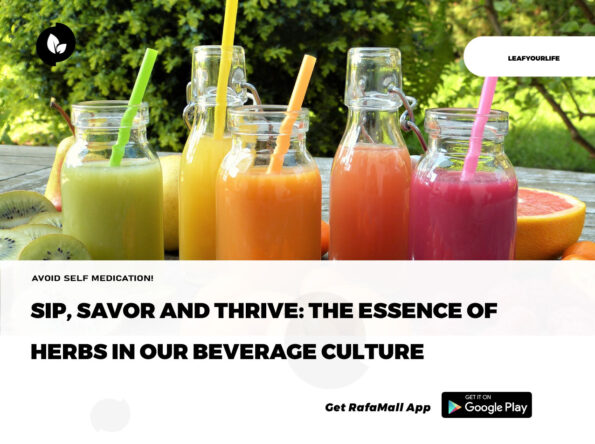
Introduction
In a world overflowing with sugary and artificially flavored beverages, the renaissance of using herbs in our drinks is a refreshing trend. Herbs, the ancient healers and culinary companions, are making a comeback in the world of beverages. From herbal teas to herbal-infused cocktails, the integration of herbs into our drinks not only tantalizes the taste buds but also offers a myriad of health benefits. In this article, we delve into the importance of incorporating herbs into our daily beverage choices, exploring how these natural wonders enhance flavor profiles, elevate our well-being, and promote sustainable practices.
1. Flavorful Elevation
Herbs are nature’s aromatic treasure trove, and when they meet beverages, magic happens. Whether it’s the zing of mint in a refreshing iced tea or the warm embrace of cinnamon in a spiced cider, herbs elevate the sensory experience of drinking. They add complexity and depth to the flavors, turning a mundane sip into an enchanting journey for the palate.
2. Wellness in a Cup
Beyond their flavor-enhancing properties, herbs have long been celebrated for their health benefits. Herbal teas, for instance, offer a wide range of therapeutic qualities. Chamomile calms the nerves, ginger soothes the stomach, and peppermint aids digestion. The inclusion of herbs in beverages allows us to turn to nature for holistic well-being, steering us away from sugary concoctions that offer little more than empty calories.
3. Herbs as Natural Sweeteners
In a world combating an obesity epidemic, herbs offer a healthier alternative to refined sugars and artificial sweeteners. Stevia, a natural sweet herb, is gaining popularity as a sugar substitute. Its sweetening power without the calories or adverse effects of sugar makes it a valuable addition to our beverages. Other herbs, like lavender and rosemary, impart a subtle sweetness that reduces the need for excessive sugar in drinks.
4. Herbal Mixology
The art of mixology has also embraced herbs with open arms. Craft cocktails now frequently feature herbal infusions, adding a layer of complexity that elevates the drinking experience. Herbs like basil, thyme, and rosemary pair harmoniously with spirits and fruit juices, creating memorable concoctions that celebrate the synergy between nature and mixology.
5. Sustainability and Local Sourcing
Using herbs in beverages fosters sustainable practices. Herbs can often be grown locally, reducing the carbon footprint associated with importing exotic flavors. Their resilience and ease of cultivation make them a perfect choice for sustainable agriculture. By choosing herb-infused beverages, consumers can contribute to reducing environmental impact and supporting local farmers.
6. Cultural Heritage and Tradition
Herbal beverages often hold a special place in cultural traditions. For example, Indian Ayurvedic tea blends have been celebrated for centuries for their health-promoting properties. In Morocco, mint tea is a symbol of hospitality and togetherness. By embracing herbal beverages, we connect with the rich tapestry of global traditions and the wisdom of our ancestors.
Conclusion
The importance of using herbs in our beverages goes beyond just taste and health. It’s about embracing nature’s bounty, fostering sustainability, and connecting with our cultural roots. The resurgence of herbal-infused drinks marks a return to a simpler, more wholesome way of enjoying beverages. So, the next time you reach for a drink, consider opting for one infused with herbs, and relish the flavors, wellness, and heritage it brings to your cup. In doing so, you’ll not only savor every sip but also contribute to a healthier, more sustainable future.











